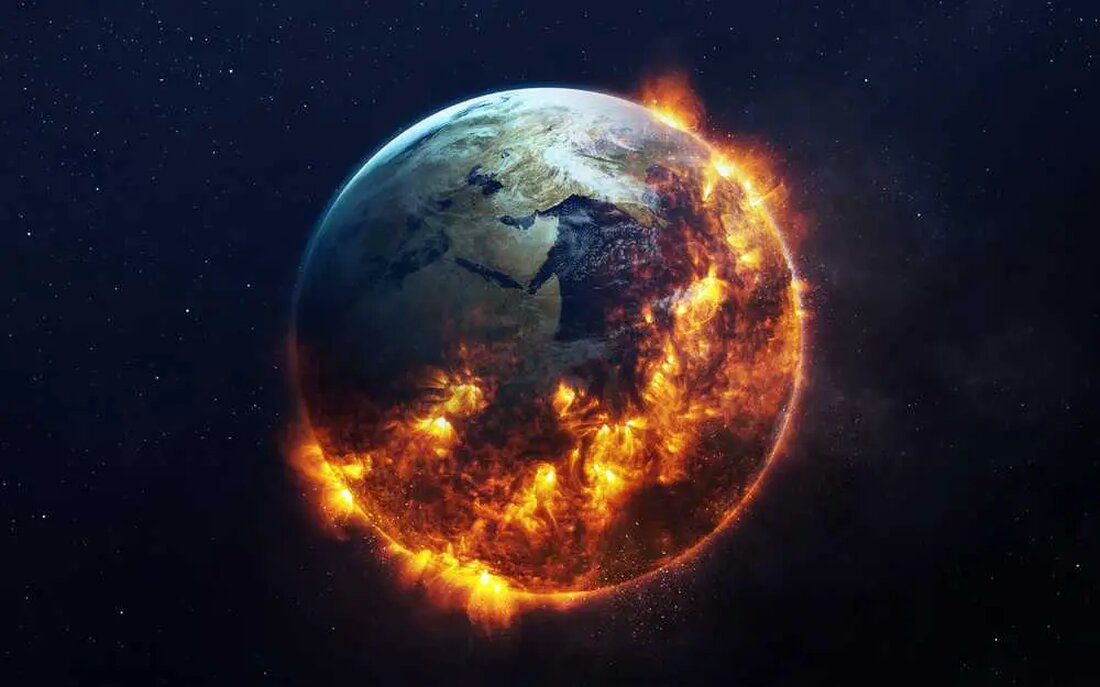222 scientists agree: This is the greatest threat to future generations
The devastating bushfires that ravaged Australia in 2020, claiming over 30 lives and causing widespread smoke inhalation and psychological distress, highlighted the stark reality of the impact of climate change on human health. The increasing threat of climate change and its multiple impacts were analyzed in the report “Our Future on Earth, 2020,” published by global sustainability research consortium Future Earth. Taken from a survey of 222 outstanding scientists from 52 countries, the report identified five most consequential global risks: failure to mitigate and adapt to climate change. Extreme weather events. Significant loss of biodiversity leading to ecosystem collapse. …

222 scientists agree: This is the greatest threat to future generations
The devastating bushfires that ravaged Australia in 2020, claiming over 30 lives and causing widespread smoke inhalation and psychological distress, highlighted the stark reality of the impact of climate change on human health. The increasing threat of climate change and its multiple impacts were analyzed in the report “Our Future on Earth, 2020,” published by global sustainability research consortium Future Earth.
Taken from a survey at
222 outstanding scientists from 52 countries,
The report identified five most consequential global risks:
- Versagen bei der Eindämmung und Anpassung an den Klimawandel.
- Extreme Wetterereignisse.
- Erheblicher Verlust der biologischen Vielfalt, der zum Zusammenbruch des Ökosystems führt.
- Nahrungsmittelkrisen.
- Wasserkrisen.
These interrelated threats pose significant risks to the health of our planet – the well-being of human civilization and the sustainability of the natural systems on which it depends. Each risk exacerbates the others, potentially leading to a cascading global systemic crisis. This understanding is crucial to moving beyond isolated solutions, such as simply removing vegetation to fight bushfires, as is sometimes proposed by politicians.
Our shared urgency to reduce our ecological footprint will determine humanity's continued prosperity on Earth.
Progress amid global challenges
The report not only identifies global risks, but also highlights the advances that have been made in technology, for example. Digital innovations are used not only for economic growth, but also for protecting ecosystems and promoting fair societies. For example, digital technologies can increase energy efficiency, reduce emissions and enable people to monitor and protect ecosystems.
Despite significant pressures on Earth's systems due to the "sharp acceleration" of economic growth in the second half of the 20th century, there is an opportunity to channel investment into sustainable development through financial instruments such as green bonds and sustainability-linked loans.
Health as a connecting lens
Linking these global risks is an aspect of human health and provides a practical perspective for policymakers. When we look at sustainable development from this perspective, the urgency and personal nature of these risks becomes clear. We are already seeing noticeable health impacts; Smoke from Australia's 2020 bushfires exposed about half the country's population to dangerous air pollution for weeks, leading to a spike in anxiety levels.
Despite the urgency of these risks, the transition to sustainable development also brings health benefits. For example, switching to cleaner energy could reduce the 7 million annual deaths from air pollution by two-thirds by 2030. This perspective illuminates potential synergies and helps policymakers understand the gravity of the crises facing the world.
Call for global cooperation
Dr. Gro Brundtland, chair of the World Commission on Environment and Development in 1987, reiterated the need for multilateralism in her contribution to the report. People's future health depends not only on their own nations, but also on global cooperation and the recognition of the interdependence of all species. For Australia, this means actively supporting international climate agreements such as the Paris Agreement and reflecting on the health impacts of its thermal coal exports, which are linked to over 440,000 premature deaths due to air pollution each year.
Additional insights
Together with these findings, we suggest further steps to make the report more comprehensive:
-
Strengthening climate resilience
: Governments worldwide should prioritize building resilient communities that can adapt to climate change. These may include infrastructure improvements, revised land use planning and targeted disaster risk reduction strategies.
-
Promoting renewable energies
: Investing in renewable energy technologies such as solar, wind and hydropower can dramatically reduce our dependence on fossil fuels and reduce greenhouse gas emissions.
-
Promoting sustainable agriculture
: To address potential food crises, sustainable farming methods that conserve resources and biodiversity should be promoted.
-
Citizen engagement
: Encouraging citizens to participate in conservation efforts can have a significant impact on local ecosystems and instill a sense of ownership among community members.
-
Innovation in sustainability
: Promoting research and innovation in sustainable technologies can lead to breakthroughs in energy efficiency, waste reduction and overall sustainability.
When we look at these crises from a health perspective, we can clearly see the urgency for immediate action. Our response today will determine whether we can meet the climate challenges of tomorrow.
Our shared future depends on identifying and addressing these global risks with urgency, innovation and global collaboration. Future generations will benefit from the decisions we make today – or suffer the consequences. Like Dr. As Brundtland reminds us, this global health crisis highlights the interdependence of all people – and indeed all species – on Earth.
As we move forward, it is worth noting that humanity's future depends not just on individual nations, but on our collective efforts to promote a sustainable planet. The health of people, the planet and all its living beings are interconnected - a truth we must embrace if we are to successfully navigate the challenging times ahead.
The future is socially conscious: a…
Please enable JavaScript
The Future is Socially Conscious: Are You Ready?Untitled
This article draws on Anthony Capon's original post, "The Conversation," and updates it with current developments and a new perspective.
Sources:

 Suche
Suche
 Mein Konto
Mein Konto
